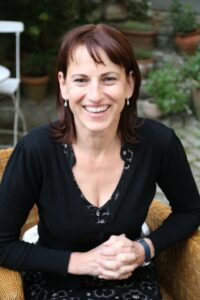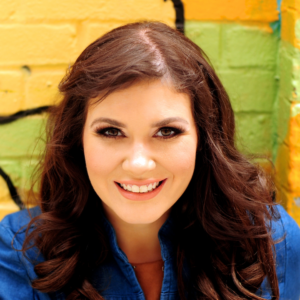An Interview With Education Officer Sonja Price
8 November 2021
 We are delighted to welcome Sonja Price, the RNA’s Education Officer, to the blog. Sonja, first of all, congratulations on your appointment to the committee! What attracted you to the Education Officer role?
We are delighted to welcome Sonja Price, the RNA’s Education Officer, to the blog. Sonja, first of all, congratulations on your appointment to the committee! What attracted you to the Education Officer role?
When browsing the RNA newsletter one morning, the role jumped out at me as something I could do as both a novelist and a university teacher. I’m involved in course structuring and teaching in my day job at a university in Germany. I used to live there, and they kept me on when I moved back to England. Teaching Creative Writing and writing itself feeds into each other and it always surprises me how much talent there is out there. As a full member of the RNA after graduating from the NWS, I thought I could look at the work from both sides and hopefully offer the right mixture for all kinds of writers.
As a graduate of the New Writers’ Scheme (and a Joan Hessayon Award nominee), what role did the RNA have in your development as a writer?
The RNA believed in me! The reader’s report was very encouraging and contained useful advice regarding the romance in my book. After careful consideration, I sent my revised manuscript off yet again to another round of agents and promptly received an offer of representation from Jane Conway-Gordon .
Can you tell us a little about your journey to publication?
I was sitting next to an artist at a dinner party, and she asked me what I did. I said that besides teaching I wrote secretly. I think so many of us do in the beginning. She urged me to show someone my work and it snowballed from there. I entered the Mslexia First Novel competition. Getting longlisted gave me the confidence to approach agents at all. At least a dozen requested my full manuscript, which wasn’t bad but when none of them went the whole way, I approached a literary consultancy who recommended the NWS. And the rest is history!
What was the inspiration for your first novel, The Giants Look Down?
On the way to work, I was listening to a report on the Vale of Kashmir. With the Himalayas, a string of lakes and fertile farmland, it could be a kind of paradise were it not for the earthquakes and the wars fought over it by India and Pakistan. My imagination took flight. What would the life of a Hindu girl look like if she grew up wanting to be a doctor like her father in this predominantly Muslim region in the 1960s? What would happen if she eventually had to choose between love and her calling? I must admit that I’ve never been to Kashmir but my agent, who is very familiar with the area, said it sounded authentic. No one said otherwise, not even the Indians who checked my story. You can do so much research-wise these days. I had to be very sensitive about the political tensions of the region, though, and answered some very critical questions put to me by a journalist when it was finally published. But I explained that writers go where their imagination takes them and they used that as the title for a substantial article!
What does your writing day look like? Do you write early in the morning or late at night? Do you go out to a coffee shop, or do you have a writing space in your house? Do you have to juggle writing with other obligations, and if so, how do you make it work?
Well, I’ve just moved to the seaside and am lucky enough to have a room of my own to work in. Writing at home is best for me as there’s less distraction. I write early in the morning when I’m fresh and full of energy, but I do have to juggle my writing with my teaching in Germany. That has been made much easier though by the fact that I can teach remotely instead of flying over once a month.
How many drafts do you usually go through before a project’s complete? What does your revision process look like?
Far too many! But writing the first draft is the hardest bit. Yet over time, I’ve got to enjoy the rewriting and editing process more and more. It’s satisfying to work on something that’s already down on paper. Mind you, chocolate biscuits and the odd glass of Chardonnay help!
What writing projects are you working on now?
I’m working on two books. One is set in the Canadian Wilds. I love writing about the exotic from the confines of my study and yes, you’ve guessed it, I’ve never been there either. The other is set in Devon, inspired by my new home. We’ll see which wins out first.
You recently taught a course for the RNA — Honing Your Craft: Which Aspects of Your Writing are a Breeze and Which a Challenge? What was that experience like?
Interacting with fellow writers is always rewarding. The difficulty lay in the heterogeneity of the group. Some had written quite a few books and were published, and others were new to the game. The seasoned writers were very generous with their advice and the newcomers were ever surprising in the extracts they gave in. The course gave us all an opportunity to talk about tricky aspects of our writing and how we deal with them; secure space to discuss what works and what doesn’t.
What advice do you have for emerging authors who want to improve their craft?
Grow a thick skin. Being talented is important but it’s often tenacity that beats the publishing odds.
What advice do you have for seasoned authors who are thinking about someday teaching a course as an RNA Learning tutor?
Develop an angle of your writing into a course that others would benefit from. Something that is characteristic of your writing, or the marketing process. Don’t be put off by the technical side of remote teaching. We’ll help you with that if you have trouble.
Website: sonja-price.com
Sonja was talking to Victoria Chatfield.
 Victoria Chatfield originally hails from New York where she worked as a social media manager in the fashion industry. While she started out as a ghostwriter for magazine editors, she’s now a member of the NWS, writing romantic suspense and psychological thrillers. (She loves the really bad boys.) Find her on Facebook and Twitter at @vavazquezwrites.
Victoria Chatfield originally hails from New York where she worked as a social media manager in the fashion industry. While she started out as a ghostwriter for magazine editors, she’s now a member of the NWS, writing romantic suspense and psychological thrillers. (She loves the really bad boys.) Find her on Facebook and Twitter at @vavazquezwrites.



